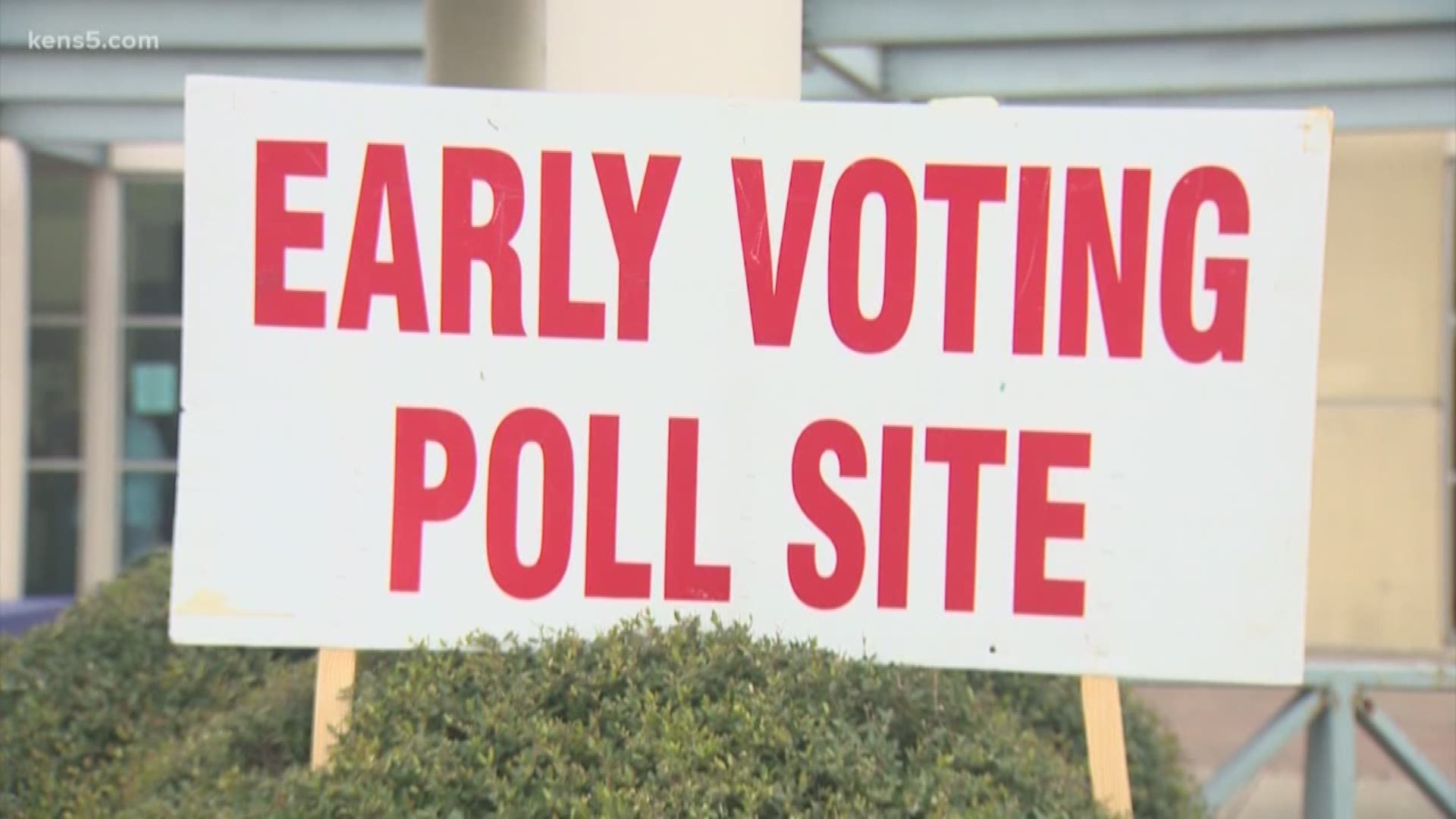SAN ANTONIO — Super Tuesday voters in Bexar County and all across San Antonio are heading to the polls to cast their votes in the Democratic and Republican primaries. The primary elections allow voters to indicate their preference for their party's candidate and serve to narrow the field of candidates.
These candidates will then face off in the general election in November. In November, voters will decide who they want to represent them at the local, state, and national levels.
Am I registered to vote?
In Texas, early voting began on February 18 and ended on February 28. In order to vote, you must be registered. Check your registration status here.
What should I bring to my polling location?
So you've checked your registration status and you're registered to vote. What's next?
When you go to vote you'll want to make sure that you have all of the proper identification.
According to VoteTexas.gov, any of the following forms of identification will work:
- Texas Driver's License
- Texas Elections ID Certificate
- Texas Personal Identification Card
- Texas Handgun License
- U.S. Citizenship Certificate with Photo
- U.S. Military ID Card with Photo
- U.S. Passport (Book or Card)
If you don't have any of the above forms of identification, you can fill out a Reasonable Impediment Declaration form at the polls and show a copy or original of one of the following documents:
- Certified Domestic Birth Certificate or Court Admissible Birth Document
- Current Utility Bill
- Bank Statement
- Government Check
- Paycheck
- Government document with your name and an address including your Voter Registration Certificate
Where do I go to vote?
If you were participating in early voting (February 18 through February 28), you could find early voting locations through the Texas Secretary of State website here.
If you are looking for a place to cast your vote on Super Tuesday, March 3, and you live in the following area counties, you can vote at any location in your county of registration:
- Atascosa County
- Bexar County
- Comal County
- DeWitt County
- Guadalupe County
- Kendall County
- Medina County
However, if you live in any of the following counties, you will only be able to vote at the voting precinct assigned to you, which can be found at the Texas Secretary of State voter page.
- Bandera County
- Dimmit County
- Edwards County
- Frio County
- Goliad County
- Gonzales County
- Karnes County
- Kerr County
- Kinney County
- Lavaca County
- La Salle County
- Maverick County
- McMullen County
- Real County
- Uvalde County
- Val Verde County
- Wilson County
- Zavala County
Voting hours on Election Day are 7 a.m. to 7 p.m.
For any questions on polling places or voting, you can contact your County Elections Office.
What am I voting on exactly?
During the primaries, Texans will vote on their party's candidates for U.S. President, U.S. Senate, congressional and legislative offices, the State Board of Education, the Railroad Commission, and judicial seats. Your exact ballot depends on your county and jurisdiction, plus the party whose primary you choose.
Additionally, it is important to note that your address determines your district and who represents you. The Texas Tribune offers a tool that will allow you to see what races you can cast your vote in.
Can I vote by mail?
If you will be 65 years of age or older on Election Day, have a disability, or will be outside of the county during early voting hours and Election Day then you can apply to vote by mail.
An Application for Ballot by Mail (ABBM) can be found here.
Who's still running for president?
Former Vice President Joe Biden, D
This is Biden's third run for the presidency. He was elected to seven terms in the U.S. Senate before serving as Barack Obama's vice president. Biden has said he would campaign as an "Obama-Biden Democrat," who is as pragmatic as he is progressive.
Former New York City Mayor Michael Bloomberg, D
The former New York City mayor and one of the world’s richest men jumped into the field late in November 2019. A senior adviser said Bloomberg would not accept a single political donation for his campaign or take a salary should he become president.
Rep. Tulsi Gabbard, D-Hawaii
Gabbard is a major in the U.S. Army National Guard and is calling for an end to regime-change wars. She faces controversy over previously held anti-gay views but says she is now an LGBT supporter.
Sen. Bernie Sanders, I-Vt.
Sanders finished second to Hillary Clinton for the Democratic nomination in 2016. Despite running as a Democrat, Sanders has labeled himself as an independent throughout his political career. He's campaigning on getting money out of politics, Medicare For All and battling climate change.
President Donald Trump, R
The president launched his reelection campaign on the day of his inauguration. While Trump has high popularity among Republicans and was given his highest approval rating yet from Gallup in early February, he has yet to break an average 50 percent overall approval rating in most polls.
Sen. Elizabeth Warren, D-Mass.
Warren is an expert on bankruptcy law and is known for her advocacy of protections for consumers. Has proposed a wealth tax and a massive program to forgive student loan debt.
Former Gov. Bill Weld, R-Mass.
The self-described Reagan Republican has called on President Trump to resign since the release of Robert Mueller's report into the 2016 election. But, some state Republican parties are canceling their primaries and giving their delegates to Trump, so Weld's chances of taking the nomination away are virtually nonexistent.

